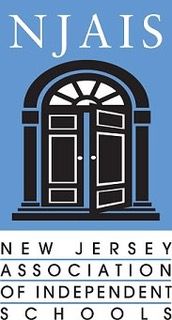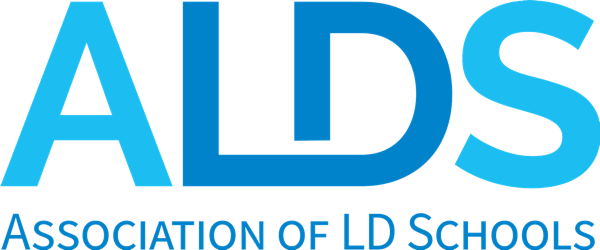Dan Rynkowski (8th, ’04) stopped by Craig during his spring vacation.He had just returned from Red River Gorge, KY where he and four others rented a cabin for a week in order to do some spelunking and rock climbing in the Mammoth Caves.Dan got into climbing recently and spent the summer of 2008 climbing the “Gunks” (Shawangunks) in the Catskills.When asked about his most challenging climb, he said “hanging upside down in the Mammoth Caves”(a 5.13 rated climb — top difficulty is 5.15) “was amazing.”
David Philhower wrote in and said he is a graphic designer in NYC working on concept art for a game on the iPhone. He uses Adobe, PhotoShop and other programs and is currently working towards an Adobe certification.
Brian Cannavina (Class of 2008) represented the New Jersey National Soccer Team at the Special Olympic National Games in Lincoln, NE, July 2010.
Hunter Rosenthal (Class of 2008 LS) stopped by to visit Craig during winter break. He is enjoying life at the Northwood School in Lake Placid, NY. He has class from 7:40 a.m. to noon and again from 3:00 to 6:00 p.m. but gets to spend the afternoons skiing competitively all winter season. During the fall, he enjoyed doing crew and in the spring season played lacrosse.
Letters to My Younger Self:
Having Learned to Thrive with a Learning Difference, Here’s What I Wish I Could Tell the Younger Me
By Emilie Shafto
Last fall, I walked into a 2nd grade classroom for the first time since I was a 2nd grader. Although I was entering as an adult and assistant to the teacher, suddenly I was back in my small body, panicking about my handwriting, spelling, and (worst of all) my performance on timed math calculations. Second grade was the year I was classified as learning disabled.
While working at this elementary school, I found myself remembering how my elementary school years felt. From my perspective as a successful student, it’s odd now to recall what sort of student I used to be. I’m beginning my senior year at Drew University, and I have maintained a 3.8 grade point average. I no longer use any accommodations. If you had told my 2nd grade self that this was her future, she never would have believed you, and she probably would have begun to cry thinking about what a beautiful imagination you had.
On my first day as an assistant in the classroom, sure enough, the 2nd graders were taking their “mad minute” math tests. I was nervous, so I hung back, observing. When they finished, the teacher asked me to go around and help students check their work and mark down their scores. One little girl was twisting her braids, a devastated look on her face. She had finished 10 problems of 30 and of those only 5 were correct. “I’m just bad at math,” she said softly.
I thought of all those times I had said exactly that. I thought about how long it took me to get past the math anxiety I developed during my elementary school years. I told her that in 2nd grade, I never passed a single timed math test. That surprised her. I then gave her some news that truly shocked her. I told her that after elementary school, she would never have to do such computations so quickly and that after 8th grade, she might never have to use them at all. After this, math was going to be completely different. Instead of rote memorization, it would be about problem solving.
I don’t know whether this information will help that girl through her next few years. But as I said it to her, I suddenly felt as if I were telling it to myself, to little Emily who had suffered routine failure and declared herself “stupid” over and over throughout elementary school.
Back then, my 2nd grade teacher had put a paper racetrack up on a bulletin board. Every student had a little race car with his or her name on it that would travel along the racetrack each time that student passed the next level of timed tests. Suffice it to say, mine never moved. Just weeks into the year, I was so far behind everyone else that other students were noticing. My parents came in to talk about how this racetrack was affecting me – how I was, by that point, so sure of failure that I was learning it hurt more to try and fail than to not even try.
My teacher’s solution was to take my race car down. I hated myself for that. The worst part was that I knew that even if I still had a race car, it would be sitting at the edge of the board. I felt cemented in place; I did not know how to succeed or even how to learn. For a long time, I felt that I had failed that little car.
Thinking through my 2nd grade memories, I wrote these five letters to myself. May they help caring teachers know what to say to all their struggling students.
Dear Emily,
You are never going to be good at calculating math problems in your head. This, however, does not mean that you aren’t going to be fine in mathematics. In fact, in college (I know that sounds like an eternity from now), you will get an A in a math class. So what should you do during these tests? You should flip over the paper and draw. That way, instead of starting off school each morning feeling bad, you’ll start off happy. Stop worrying about the math tests.
Dear Emily,
I know that it’s very hard to write neatly. Unfortunately, you’ll never have beautiful, flowery handwriting. It’s OK to cry about this. But let me tell you something; you have a gift for writing. I know that at the moment that sounds ridiculous, but let me explain. Starting in middle school, your teachers will talk about the content of your writing, that is, the stories you tell and how well you put sentences together. I don’t have to tell you to start practicing this because you tell stories all the time. Right now, all it does is amuse your little sisters, but soon it will be your favorite subject in school. Teachers will call your parents to tell them how gifted you are. And, darling, just wait until you discover poetry!
Dear Emily,
I want you to write down on a piece of paper “I, Emily Shafto, have a learning disability.” Now I want you to tear that paper into as many pieces as you can.
You are now cured. You are no longer “learning disabled.” From now on, you have a “learning difference.” Right now, it feels like a disability. But your “difference” comes with many gifts. Think about how much you read and how difficult the books you read are. Think about how shocked your 2nd grade teacher looked when you told her you read “The Secret Garden.” She was shocked because only gifted kids could read that.
You might want to think of it as a trade-off: Your brain might only be good at certain things. Although you can’t do math calculations quickly, you’re going to be very good at algebra. You have bad handwriting, but you are a terrific writer – you will publish poems in your high school and college literary magazines. You’re not very good at spelling, but you are an excellent reader. You are going to read books that are far more complicated than your current teacher has ever read, and you’re going to love them.
Dear Emily,
I want you to be your own advocate. This is going to become your motto later in life, so you might as well learn it now. You have to set up the world so that you can learn the way you learn. This means you have to go to your teacher and talk about your strengths and weaknesses as a student. Tell your teacher that you need to sit in the front of the room to keep up. Ask if you may have a little extra time to pack up your bag at the end of the day so you don’t have to rush. It’s the rushing that makes you forget to bring home worksheets.
I know how scary this sounds, but you are definitely brave enough. As nice as it would be for the teacher to figure it out on her own, you are responsible for your learning. If the teacher says no, then at least you know that it’s the teacher who is holding you back, not you.
Dear Emily,
You are beautiful. You are special. You are loved. And, Emily, you are brilliant.
These coming years will be a struggle. You will have to work twice as hard as everyone else to do as well as they do. I know it isn’t fair. I know how bad you feel right now, but I promise that all of these bumps will only make you happier when you finally succeed. You will know what it is to really work, to push yourself through a subject matter too difficult for you.
Because of that, you will be a stronger person. But most important, you will know what has to change in the way schools treat children like you – and what teachers need to say to help struggling children. And that is my final promise. I promise you that I’ll do everything in my power – and fight with whomever I need to – to prevent what happened to you from happening to any child again.
Love, Emilie
PS. I changed the spelling of our name so that we don’t have to write the letter y anymore. It was always the hardest part of our name to write, and it didn’t ever look pretty in our handwriting. Doesn’t it look nice with ie at the end?
P.P.S. Don’t skip your 8th grade dance.
Craig High School grad Libby Wagner, class of 2007, stopped by CHS recently to share what she has been up to. The big news was that she landed a full-time position at a daycare center for infants and pre-school aged children in Parsippany.
This past May, Libby graduated from Curry College with a degree in Early Childhood Education.
While at Curry, Libby utilized the services of the Program for Alternative Learners (PAL), Curry’s comprehensive support program for students with learning disabilities, while taking a 12 credit per semester course load. By junior year Libby was able to manage 18 credits a semester and impressively graduated within four years.
She interned at two pre-schools previously, and also student taught while at Curry, where she found her niche for working with this age group. To quote her during her visit to CHS, “I absolutely love, love, love it!” Congratulations and continued good luck to Libby. We are so proud of you.
John Schiavone
Lacrosse
2006
Michael Phillips
Basketball
2006
Andrew Morris
Basketball
2006
Brian Kerwin
Basketball
2007
Dan Rynkowski
Basketball
2008
Michael Sparano
Lacrosse
2008
Paige Reeth
Basketball
2009
Sara Iannarelli
Soccer
2009
Kyle Cabana
Soccer
2010
Ron Guerra
Soccer
2010
Johnathan Bozzick
Basketball
2010
Tieron Wilson
Basketball
2010
Matt Bellantoni
Lacrosse
2010
The 2006 Boys Basketball Team
2010
Dr. Eric M. Caparulo
Founder
2011
Cody Menk
Lacrosse
2011
Ryan Donnelly
Basketball
2012
Jordan Isaacs
Soccer
2012
Michelle Reyer
Basketball
2012
Brandon Wexler
Soccer
2012
Steven Schotz
Soccer
2012
Aaron Dowd
Soccer
2012
Stephen Cerra
Soccer
2013
Jack Monahan
Lacrosse
2013
Jenni Shaw
Basketball
2013
Patrick Wilbur
Basketball
2014
Michael Giostra
Soccer
2014
John Dubose
Soccer/Basketball/Lacrosse
2015
Steven Dinallo
Basketball/Lacrosse
2015
Chloe McCardel
Swimmer/Role Model
Tad Jacks, Head of School asked three students in March 2015 , who had attended The Craig School, to reflect on their experience as a student and answer three questions about the skills, the teachers who had an influence on them, and words they would use to describe Craig to others. The respondents were Samantha Algieri, a graduate of Craig High School and Drew University; Daniel Shapiro, a graduate from our 8th grade, and now attending Union Catholic High School; and Andrew Zesk, a graduate of Craig High School and Misercordia University.
His questions were as follows:
Tad Jacks ( T.J)
Tell me one skill that you learned at The Craig School that you have taken to your current school or job?Samantha Algieri (S.A.) The one skill I have taken from Craig is my writing skills. Before Craig I could hardly write a paragraph, but after I was taught the skills I was able to form pages. College is all about writing papers, and if it wasn’t for Craig I wouldn’t be able to do one of them.
Daniel Shapiro (D.S)
The organizational skills that Craig had taught me have helped tremendously in high school. The way my teachers at The Craig taught me how to break things down into smaller components has helped me with my approach to studying.
Andrew Zesk (A.Z)
One very important thing that I took from the The Craig School was writing skills. Before Craig writing was not my strong suit, but from instruction in writing skills at both the middle school and high school I have improved greatly in writing. The writing skills I learned from the Craig School definitely helped me in my college career.
T.J.
Teachers feel their students are important to them. Which teachers(s) made your experience at The Craig School a positive one and why? What would you tell a younger student to ask that teacher about while they are at Craig?S. A. Mrs. Chitticks made my experience most positive by teaching me to never give up on anything. I would tell the younger students to go to her for help. She is very patient with students, and always was willing to help.
D. S.
Mrs. Ranieri pushed me to keep trying. She never gave up on me and she helped me realize my potential in math. Without her, I’m not sure I would be as good as I am in high school math. Mr. Furlong made my Craig athletic experience outstanding. He was someone that was always there for me; even outside of sports. I always felt like I could talk to him about anything.
A.Z.
One teacher who definitely made my Craig School experience positive was Mr. Jacobs. While I was always interested in history, it was through his history classes that I realized I could take my interest in history beyond high school.
T.J.
When you talk to people in your family or friends, what 3 words or phrases come to mind when you think about The Craig School?S. A. Three words that come to mind are struggle, laughter, and conquer.
D.S.
I tell them it was a place where I could be successful and feel confident. I worked hard, but I had fun at the same time.
A.Z.
When I think of The Craig School these words come to mind, welcoming, hard work, and preparation for the future.
Head of School, Tad Jacks recently met Andrew Best. As of this note in late 2016 Andrew is a college student at Marist College. Andrew attended Craig until the end of 8th grade. Tad asked Andrew to reflect upon his experiences and what information Andrew felt could be helpful to others to learn about Craig, as well as general advice as you approach and attend college.
Mr. Jacks: Describe a skill that you learned at Craig?
Andrew Best:
A skill that I learned from Craig was the ability to be organized and work efficiently in groups. To this day I use the knowledge and skills my teachers have taught me to work properly in group environments. This skill especially comes in handy. Since, I am on the path of becoming an Elementary school teacher which includes a lot of group work.
Craig School not only prepared me academically but also mentally. Through the amazing and supportive teachers, I was able to overcome my troubles with reading and math (Building much needed confidence). The use of a supportive teaching style mixed with helpful technology allowed me to grow and become the young man I am today.
Mr. Jacks: What advice would you give our students about what else a student needs to think about before going to college?
Andrew Best:
When planning for college it is good to load up your portfolio with sports, clubs, and volunteer work. Make the college see how hardworking and unique you are. Also, when it comes to interviews just be yourself. Tell them your plans, and what you want to be when you grow up.
Sports are a major factor in my life. During high school I joined the cross-country team and went to states twice. In college I got on the division 1 Rowing team and competed against Ivy leagues. That all started when I began playing soccer for Craig. Not only do sports make friends but they also create an outlet for all that extra energy. I can honestly say I have done better academically when doing sports. It has helped me become more time organized and helps me focus.
Mr. Jacks: As you think about how you think about education now that you are in college
Andrew Best:
When going forward with your education it most likely will be harder for you, due to your Learning Differences. Don’t let that discourage you, many great visionaries, leaders, and humans have had to deal with LD. Albert Einstein said, “In the middle of difficulty lies opportunity”. He had dyslexia. General Patton said, “Accept the challenges so that you can feel the exhilaration of victory” He also had an LD. All that extra hard will pay off in the end and you will be better off for it.
How long were you at The Craig School?
Two years –for 7th (2007-08) and 8th grade (2008-09)
Tell us in your words why your time spent at The Craig School was so beneficial to
You?
Prior to enrolling in The Craig School, I was a sixth grade student reading on a second grade level. Aside from myself, the only person that was disturbed by this was my mother. The educators and evaluators I had been exposed to felt less work was best in an attempt to reduce my frustration caused by not being able to independently complete my work assignments. Despite a medical diagnosis of dyslexia, my needs were not met and there was not a clear plan.
At The Craig School, there were not excuses made and modifications to assignments. I didn’t need to pretend to understand assignments nor did I need to overcompensate for my disability. The teachers understood my needs and were able to teach to my needs by being flexible with their curriculum.
It is important to understand, the teachers at The Craig school did not “fix” me. I am and will always be dyslexic. However, they were able to teach to my needs and show me how the appropriate compensations would become beneficial to my education.
Can you give us a brief history of your schooling after you left Craig?
After graduating 8th grade, I reentered the public school system as a high school student. I was classified as I had been since 2nd grade, however I was able to advocate for myself and I took an active role in developing an IEP that suited my needs. I knew what worked and what didn’t work. Of greatest importance, I had confidence in myself and my abilities.
Mountain Lakes High School class of 2013
Describe a skill that you learned at Craig?
What advice would you give our inquiring parents about why a school like Craig can help their student?
Seriously worth looking into. Small class size, well trained educators and customized curriculum
Offers an opportunity to educate to the specific needs of the child.
How do you feel about your current time at Craig now that you are working and helping students that were in your position?
I have a unique understanding because I had been there. I have walked in the shoes of the student that feels useless and frustrated. I have been the student that no one understood.
Now I am in a position to make a difference in that struggling student’s life.
For more information on ways of giving or to make a donation online you can clicking here.





